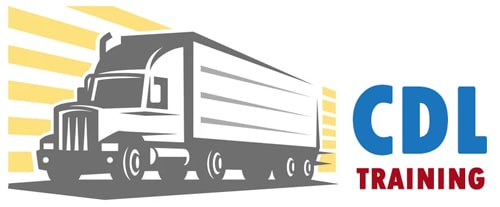Certifications and Qualification Requirements Wyoming CDL Licenses
Wyoming CDL training schools follow specific certification standards to ensure quality education. All programs must adhere to the Federal Motor Carrier Safety Administration (FMCSA) Entry-Level Driver Training regulations that went into effect in February 2022.
Students must complete both classroom and behind-the-wheel training before taking their CDL tests.
The curriculum typically covers:
- Vehicle inspection procedures
- Basic control skills
- Safe driving techniques
- Hours of service regulations
- Trip planning
- Cargo handling
Before starting CDL training in Wyoming, applicants need to understand several important qualifications and paperwork requirements. Meeting these criteria is essential for successfully enrolling in any Wyoming CDL program. To obtain a Commercial Driver’s License in Wyoming, you must first possess a valid Wyoming driver’s license.
You cannot immediately apply for a CDL without having a standard license first. You must complete Entry-Level Driver Training (ELDT) with a registered training provider before taking the CDL skills test. This training includes both theory and behind-the-wheel instruction.
Different CDL classes have different requirements:
–Class A CDL:
Required for combination vehicles with a gross combined weight rating of 26,001+ lbs
–Class B CDL:
For single vehicles weighing 26,001+ pounds
–Class C CDL:
For vehicles designed to transport 16+ passengers or hazardous materials
Wymong CDL Age Restrictions
The minimum age requirements for CDL applicants in Wyoming are:
– 18 years old: Minimum age for intrastate commercial driving (within Wyoming only)
– 21 years old: Required for interstate commercial driving (crossing state lines)
These age restrictions are strictly enforced. Younger drivers between 18-20 years can only operate commercially within Wyoming state boundaries. For specialized endorsements,
Additional age requirements may apply.
For example, school bus endorsements often have higher age minimums due to the responsibility involved. Some CDL training programs may have their own minimum age requirements that exceed the state minimums. It’s advisable to check with specific schools about their age policies before applying.
Documentation Needed when enrolling in a Wyoming CDL training program
Required documentation includes:
– Valid Wyoming driver’s license
– Social Security card or number
– Birth certificate or passport for proof of identity
– Proof of Wyoming residency (utility bills, lease, etc.)
– Medical Examiner’s Certificate (DOT medical card)
For non-U.S. citizens, proof of legal presence in the country is required. All documents must be original or certified copies. Some CDL training providers may require additional documentation such as a driving record abstract or proof of insurance. Specific program costs vary, with some programs like NWC’s Class A program costing $4,675.
Health and Fitness Criteria
CDL applicants must meet specific health standards to ensure they can safely operate commercial vehicles. A Department of Transportation (DOT) physical examination is mandatory.
The physical exam evaluates:
– Vision (at least 20/40 vision with or without correction)
– Hearing capabilities
– Blood pressure and heart health
– Physical ability to perform essential driving tasks
Certain medical conditions may disqualify applicants, including uncontrolled diabetes, certain heart conditions, and seizure disorders. However, some conditions can be managed with proper treatment and monitoring.
The DOT medical card is typically valid for up to 24 months, though some conditions require more frequent recertification. Applicants must disclose all medications they are taking during the examination. Drug testing is also required before beginning CDL training. Random drug and alcohol testing will continue throughout a commercial driver’s career.
Curriculum for CDL training programs in Wyoming
Classroom and Behind-the-Wheel training
Wyoming CDL training programs follow structured curriculum designed to prepare students for both written exams and practical skills tests. Training includes comprehensive classroom learning, practical driving experience, and detailed safety regulations that meet federal and state requirements.
Classroom
CDL classroom instruction in Wyoming typically covers essential knowledge areas required to pass the written portion of the CDL exam. Students learn about vehicle inspection procedures, traffic laws, and load securement techniques. Programs include study of the Wyoming Commercial Drivers License requirements and federal regulations. Most schools provide detailed manuals and interactive learning materials to help students master complex concepts.
Classes typically cover:
-Vehicle systems and maintenance
-Hours of service and logbook requirements
-Map reading and trip planning
-Weight distribution and cargo handling
The classroom portion typically takes 40-80 hours to complete, depending on the program. Many schools use both traditional teaching methods and computer-based training to accommodate different learning styles.
Behind-the-Wheel Training
Practical driving instruction forms the core of Wyoming CDL training programs. Students practice on both on and off highway terrains, particularly important for energy industry work common in Wyoming. Training typically progresses from controlled environments to actual road conditions. Students first master basic maneuvers in practice yards before advancing to open roads.
Key driving skills taught include:
-Basic vehicle control and backing maneuvers
-Shifting techniques for various conditions
-Mountain driving procedures
-Defensive driving strategies
-Winter driving techniques specific to Wyoming’s climate
Most programs provide a hands-on approach to CDL training with individualized instruction. Training vehicles match the class of license the student is pursuing, typically Class A commercial vehicles for most comprehensive programs.
Safety Compliance
Safety training is integrated throughout Wyoming CDL curricula to ensure drivers understand federal and state safety regulations. This section covers accident prevention, emergency procedures, and regulatory compliance.
Since February 7, 2022, all prospective CDL drivers must complete federally-mandated Entry-Level Driver Training (ELDT) before taking their CDL skills test. Wyoming schools have adapted their curricula to meet these requirements.
Safety instruction typically includes:
– Hazard perception and emergency maneuvers
– Hours of service regulations and fatigue management
– Pre-trip inspection procedures
– Proper cargo securement
– Accident reporting protocols
Many programs incorporate simulations of emergency situations to prepare drivers for real-world challenges. Safety compliance training also covers substance abuse regulations and testing procedures required by the Department of Transportation.
Tuition, fees and funding opportunities for CDL Programs in Wyoming
The cost of CDL training in Wyoming typically ranges from $3,000 to $5,000 depending on the program and location. This investment covers classroom instruction, behind-the-wheel training, and study materials for CDL exams.
Additional fees to consider include:
– CDL permit fee: $40-60
– CDL skills test: $80-120
– CDL license fee: $25-50
– DOT physical examination: $60-100
These costs represent a significant but worthwhile investment considering the average starting salary for truck drivers ranges from $40,000-$60,000 annually. Wyoming offers several scholarship options for aspiring truck drivers seeking financial assistance. The Wyoming Department of Workforce Services provides funding assistance for qualified applicants pursuing CDL training.
Eligibility typically requires Wyoming residency and meeting certain income or employment status criteria. Some industry-specific scholarships are available from Wyoming Trucking Association, Women in Trucking Foundation as well as many national companies with regional operations. Veterans can access additional funding through GI Bill benefits for approved CDL training programs. Many schools offer payments plans as well as private loans. Some employers also offer tuition reimbursement programs for new hires who commit to working with them for a specified period after obtaining their CDL or through employer sponsored training.
Wyoming CDL programs connect training with certification and job opportunities. These programs prepare students for state exams while building relationships with employers who need qualified drivers.






